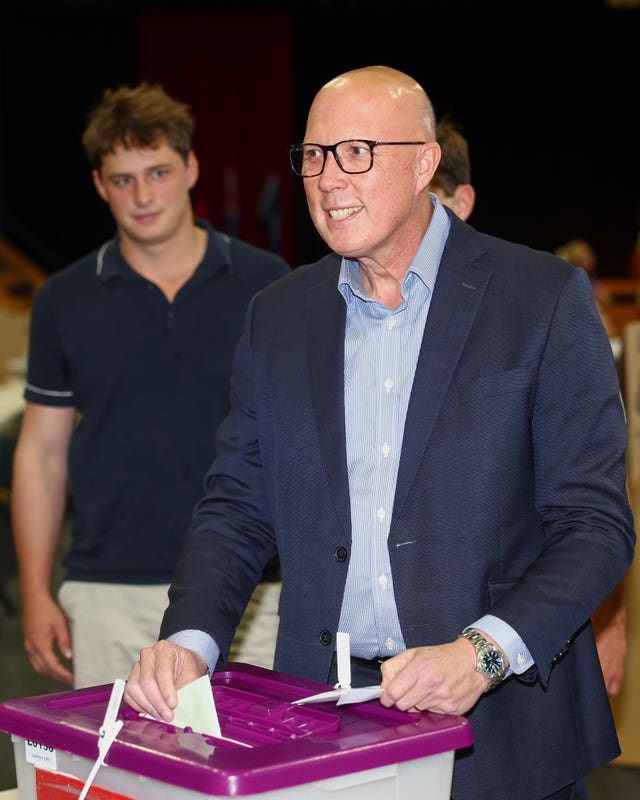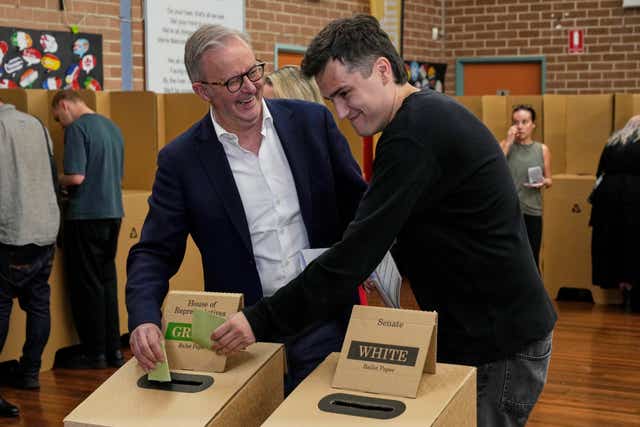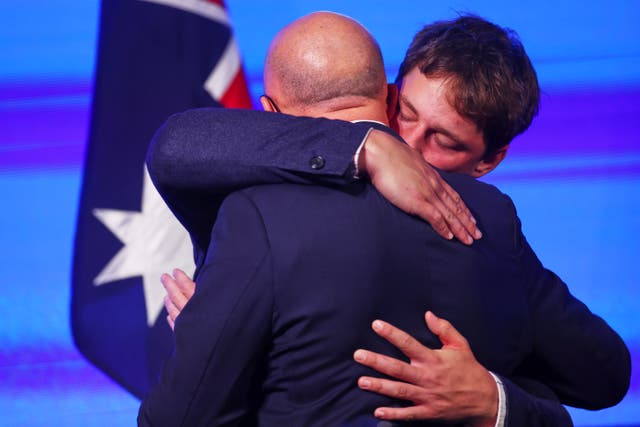Anthony Albanese wins second term as Australian PM
Opposition leader Peter Dutton said his Liberal party did not ‘do well enough’ in the election.

Anthony Albanese has become the first Australian prime minister to win a second consecutive three-year term in 21 years.
He suggested his government has increased its majority in the next Parliament by not modelling itself on US President Donald Trump’s administration.
“Australians have chosen to face global challenges the Australian way, looking after each other while building for the future,” Mr Albanese told supporters in a victory speech in Sydney.
“We do not need to beg or borrow or copy from anywhere else. We do not seek our inspiration overseas. We find it right here in our values and in our people,” he added.

His centre-left Labour Party had branded Mr Albanese’s rival Peter Dutton, the opposition leader, “DOGE-y Dutton” and accused his conservative Liberal Party of mimicking Mr Trump and his Department of Government Efficiency.
Mr Dutton had earlier conceded his alliance of conservative parties had been defeated at the election and that he had lost his own parliamentary seat that he had held for 24 years.
Mr Dutton’s plight parallels that of Canada’s last opposition leader, Pierre Poilievre, who lost his seat after Mr Trump declared economic war on the US neighbour to the north.
Mr Poilievre had previously been regarded as a shoo-in to become Canada’s next prime minister and shepherd his Conservative Party back into power for the first time in a decade.
Analysts argue that mirroring Mr Trump switched from a political positive for Australian conservatives to a negative after he imposed global tariffs.

Trumpet of Patriots, a minor party inspired by Mr Trump policies with an advertising budget funded by mining magnate Clive Palmer that eclipses the major parties, attracted only 2% of the vote.
US secretary of state Marco Rubio congratulated Mr Albanese on his election to a second three-year term.
“Australia is a valued ally, partner, and friend of the United States. Our shared values and democratic traditions provide the bedrock for an enduring alliance and for the deep ties between our peoples,” Mr Rubio said in a statement.
“The United States looks forward to deepening its relationship with Australia to advance our common interests and promote freedom and stability in the Indo-Pacific and globally,” he added.
Labour had held a narrow majority of 78 seats in the 151-seat house House of Representatives, the lower chamber where parties form governments.
Australian governments are usually elected for at least a second term, but are expected to lose seats at the second election. But Labour is on track to increase its majority in its second term.
Energy policy and inflation have been major issues in the campaign, with both sides agreeing the country faces a cost-of-living crisis.

The Liberal Party blamed government waste for fuelling inflation and increasing interest rates, and has pledged to axe more than one in five public service jobs to reduce government spending.
While both said the country should reach net-zero greenhouse gas emissions by 2050, Mr Dutton argues that relying on nuclear power instead of renewable energy sources such as solar and wind turbines would deliver less expensive electricity.
Labour argued Mr Dutton’s administration would slash services to pay for its ambitions to build seven government-funded nuclear generators. Australia currently has no nuclear power.
The election took place against a backdrop of what both sides of politics describe as a cost-of-living crisis.
Foodbank Australia, the nation’s largest food relief charity, reported 3.4 million households in the country of 27 million people experienced food insecurity last year.
That meant Australians were skipping meals, eating less or worrying about running out of food before they could afford to buy more.
The central bank reduced its benchmark cash interest rate by a quarter percentage point in February to 4.1%, in an indication that the worst of the financial hardship had passed.
The rate is widely expected to be cut again at the bank’s next board meeting on May 20, this time to encourage investment amid the international economic uncertainty generated by Mr Trump’s tariff policies.





